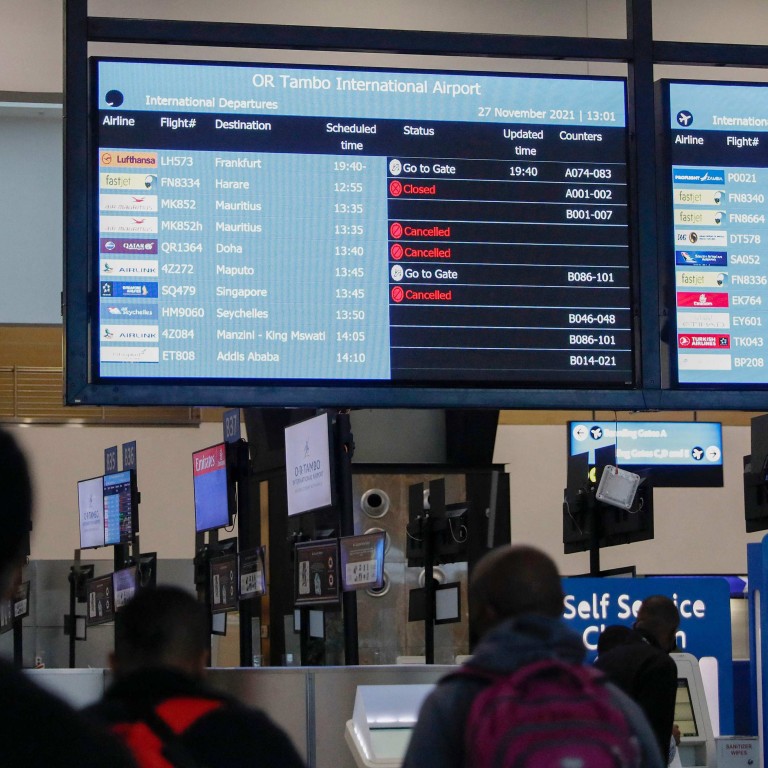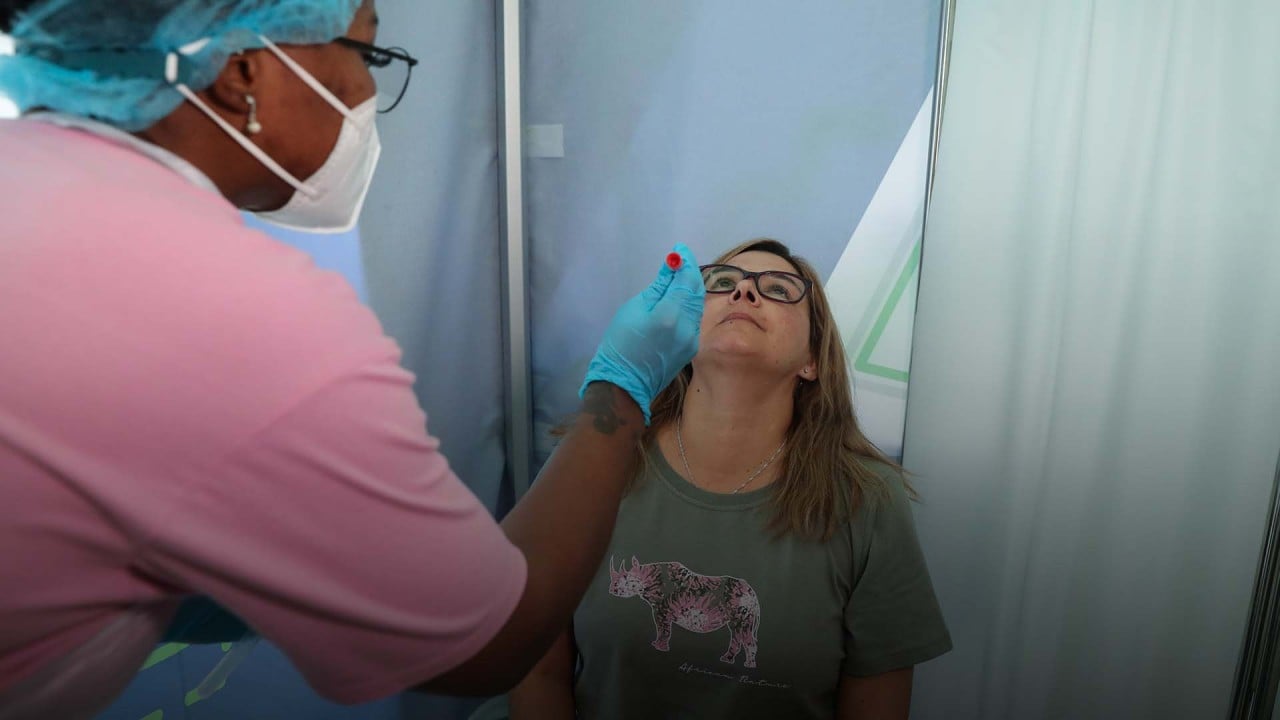
WHO pulls together international experts to understand Covid-19 Omicron variant
- World health body blames vaccine inequity for emergence of Omicron and warns against global travel bans
- Still unclear whether latest strain of new coronavirus is more infectious or causes more severe disease than previous mutations
In an update on Sunday, the WHO stressed that more information was needed about Omicron, first detected in Botswana earlier this month, and said it was working with scientists around the world to understand the variant and its impact on disease control measures, including vaccines.
“Studies currently under way or under way shortly include assessments of transmissibility, severity of infection (including symptoms), performance of vaccines and diagnostic tests, and effectiveness of treatments,” the WHO said.
According to information so far, it is “not yet clear” whether Omicron can spread between people more easily than other variants or whether infection with the strain causes more severe disease compared with previous strains.
“The number of people testing positive has risen in areas of South Africa affected by this variant, but epidemiologic studies are under way to understand if it is because of Omicron or other factors,” the WHO said.
“Preliminary data suggests there are increasing rates of hospitalisation in South Africa, but this may be due to increasing overall numbers of people becoming infected, rather than a result of specific infection with Omicron.
“There is currently no information to suggest that symptoms associated with Omicron are different from those from other variants.”
Understanding the level of disease severity would take days to several weeks, according to the health body, which added that initially reported infections were among university students. Young people tend to have milder symptoms for other variants of the Covid-19 virus.
World scrambles to contain Omicron coronavirus variant
South African doctor Angelique Coetzee, who was one of the first to suspect a new strain may be infecting her patients, told Reuters on Sunday that symptoms of the Omicron variant were different from what she had seen with Delta.
“Most of them are seeing very, very mild symptoms and none of them so far have admitted patients to surgeries. We have been able to treat these patients conservatively at home,” said Coetzee, a private practitioner and chairwoman of the South African Medical Association, noting her experience was that the variant was affecting people aged 40 or younger.
The WHO added the strain to its “variants of concern” list on Friday, based on the evidence that Omicron has several mutations that may have an impact on how the virus behaves, for example, how easily it spreads.
The variant has already been detected around the world, including in Canada, Germany, Italy, Britain, the Netherlands, Hong Kong, and Australia.
What do we know about the new coronavirus variant, and should Hong Kong be worried?
Early evidence from surveillance in South Africa, which reported the variant to the WHO on November 24, suggested the variant had a growth advantage over the highly transmissible Delta strain, which is currently dominant.
Infections had increased steeply in recent weeks in the country, coinciding with the detection of the variant, the WHO said.
Preliminary evidence also suggested there might be an increased risk of reinfection with Omicron, meaning the immune systems of people infected with other strains might not be able to successfully recognise the mutated strain.
The variant sparked concern among scientists due to the number of changes concentrated in the spike protein – part of the virus targeted by many vaccines. Some of these changes have also been seen in other variants like Delta and Alpha, where they are thought to help the virus infect people or dodge the immune system’s antibodies.
WHO urges caution at ‘mild’ label as Omicron shuts borders across globe
WHO chief Tedros Adhanom Ghebreyesus on Sunday said the emergence of the variant was linked to global vaccine inequity, with the WHO calling for this to be urgently addressed. South Africa, with only about a quarter of its population fully vaccinated, has one of the highest rates on the African continent.
“The Omicron variant reflects the threat of prolonged vaccine injustice. The longer we take to deliver #VaccinEquity, the more we allow the #COVID19 virus to circulate, mutate and become potentially more dangerous,” Tedros said in a tweet from Geneva on Sunday evening.
The discovery of the variant has already prompted a swift global response, with a number of countries – including the US, Brazil, Britain and France – tightening targeted travel controls. Israel has barred all foreign travellers.
Will flight bans stop the new Omicron variant from running rampant?
The WHO cautioned countries against imposing travel bans on southern African nations, while its regional director for Africa Matshidiso Moeti said “putting in place travel bans that target Africa attacks global solidarity”.
A World Trade Organization ministers’ conference meeting in Geneva was also cancelled because of travel restrictions that would have prevented some from attending.


